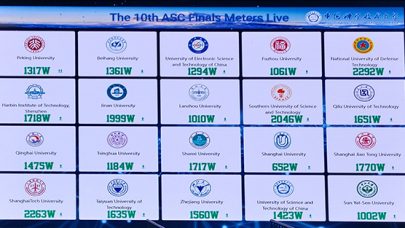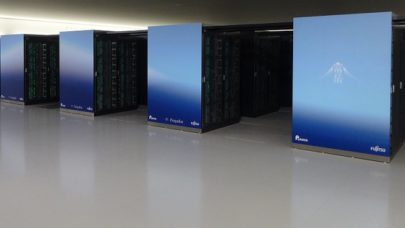
A Big Memory Nvidia GH200 Next to Your Desk: Closer Than You Think
February 22, 2024
Students of the microprocessor may recall that the original 8086/8088 processors did not have floating point units. The motherboard often had an extra socket fo Read more…

HPC Memory: When Faster Might Be Slower
January 18, 2024
Everyone in HPC knows the general rule, "the faster the memory, the better," but drilling down into this rule of thumb, a better question is, "How much faster a Read more…

SC23 HPC Student Cluster Smackdown
November 21, 2023
Since 2007, the Student Cluster Competition (SCC) has provided an international multi-day contest for the best and brightest university HPC teams. This year, th Read more…

China’s Quiet Journey into Exascale Computing
September 17, 2023
As reported in the South China Morning Post HPC pioneer Jack Dongarra mentioned the lack of benchmarks from recent HPC systems built by China. “It’s a we Read more…

ASC23: Meet the Teams
May 18, 2023
The ASC23 cluster competition was held in a basketball stadium on the campus of the University of Science and Technology of China, located in Hefei, China – Read more…

ASC23: Tenth Anniversary Edition – Still the Toughest
May 17, 2023
The tenth edition of the Asian Supercomputing Challenge took place last week in Hefei, China, and it was tougher than ever. 24 university teams (20 on site, 4 Read more…

Japan’s Fugaku Tops Global Supercomputing Rankings
June 22, 2020
A new Top500 champ was unveiled today. Supercomputer Fugaku, the pride of Japan and the namesake of Mount Fuji, vaulted to the top of the 55th edition of the To Read more…

ASC16 Kicks Off in Wuhan, China: 16 Teams, $40k in Prizes
April 18, 2016
The fifth annual Asia Student Supercomputer Challenge (ASC16) got off to an exciting start this morning at the Huazhong University of Science and Technology (HUST) in Wuhan, the capital of Hubei province, China. Read more…

- Click Here for More Headlines

Whitepaper
Transforming Industrial and Automotive Manufacturing
In this era, expansion in digital infrastructure capacity is inevitable. Parallel to this, climate change consciousness is also rising, making sustainability a mandatory part of the organization’s functioning. As computing workloads such as AI and HPC continue to surge, so does the energy consumption, posing environmental woes. IT departments within organizations have a crucial role in combating this challenge. They can significantly drive sustainable practices by influencing newer technologies and process adoption that aid in mitigating the effects of climate change.
While buying more sustainable IT solutions is an option, partnering with IT solutions providers, such and Lenovo and Intel, who are committed to sustainability and aiding customers in executing sustainability strategies is likely to be more impactful.
Learn how Lenovo and Intel, through their partnership, are strongly positioned to address this need with their innovations driving energy efficiency and environmental stewardship.
Download Now
Sponsored by Lenovo
Whitepaper
How Direct Liquid Cooling Improves Data Center Energy Efficiency
Data centers are experiencing increasing power consumption, space constraints and cooling demands due to the unprecedented computing power required by today’s chips and servers. HVAC cooling systems consume approximately 40% of a data center’s electricity. These systems traditionally use air conditioning, air handling and fans to cool the data center facility and IT equipment, ultimately resulting in high energy consumption and high carbon emissions. Data centers are moving to direct liquid cooled (DLC) systems to improve cooling efficiency thus lowering their PUE, operating expenses (OPEX) and carbon footprint.
This paper describes how CoolIT Systems (CoolIT) meets the need for improved energy efficiency in data centers and includes case studies that show how CoolIT’s DLC solutions improve energy efficiency, increase rack density, lower OPEX, and enable sustainability programs. CoolIT is the global market and innovation leader in scalable DLC solutions for the world’s most demanding computing environments. CoolIT’s end-to-end solutions meet the rising demand in cooling and the rising demand for energy efficiency.
Download Now
Sponsored by CoolIT
Advanced Scale Career Development & Workforce Enhancement Center
Featured Advanced Scale Jobs:
HPCwire Resource Library
HPCwire Product Showcase
© 2024 HPCwire. All Rights Reserved. A Tabor Communications Publication
HPCwire is a registered trademark of Tabor Communications, Inc. Use of this site is governed by our Terms of Use and Privacy Policy.
Reproduction in whole or in part in any form or medium without express written permission of Tabor Communications, Inc. is prohibited.
























